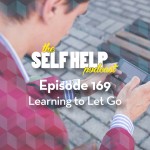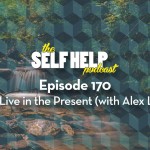Deciding to take the journey
In this weeks episode we had the pleasure of interviewing Alex. She and I worked together a couple of years ago as she made the magic changes of getting rid of the habits she had developed that did nor serve her well and replacing with new one’s that did. Like all of us, her habits were not really current, they were the ones that she been developing since the moment of her birth. We are all the habits that we create from what we learn. In the first instance these are from observation of what is going on around our emerging self and then after that they come from our experiences and more importantly from our responses to those experiences. In Psycho-speak we describe this collection of what we know and believe as our paradigm.
‘A paradigm is a standard, perspective, or set of ideas, a way of looking at something. It is a new way of looking or thinking about something. This word comes up a lot in the academic, scientific, and business worlds.
A new paradigm in business could mean a new way of reaching customers and making money. In education, relying on lectures is a paradigm: if you suddenly shifted to all group work, that would be a new paradigm. When you change paradigms, you’re changing how you think about something.’
Perhaps we should revisit the last sentence and perhaps embellish it a little.
When you change your paradigm, you are changing the way that you think, feel and behave about you and your wellbeing.
What Alex managed to do was take the journey that changed her paradigm. In so doing she changed her life, her relationships and her level of happiness and self-fulfillment.
You embark on ‘the journey’ when you make the decision to change your paradigm. When you do this you move from the unconscious programming of your childhood, where your unconscious paradigm controlled who you are and what you do, to a new you. This new you is in control of, and actively creating, and living what you desire. This is a new you who is living and getting what you really want from your life.
Different disciplines will describe this journey in many different ways, for me this is ‘waking up’ and is what our work at ‘Live In The Present’ is all about. The course and the book are designed to take you through the steps required to re-wire your paradigm. This is not prescriptive, we do not have an ideal paradigm that you should create or a set of dogmatic beliefs about how you should be. Your journey is you deciding what is the best version of you, that you would like to be, and then enabling you to take the steps to get there.
Strangely, when embarking on the journey, most people have no real idea of their destination. Many of those that do, at the outset, will often change their course mid-journey as their awareness of their real needs and desires emerges. It is a bit like me asking someone “what is it that you really want” and they say “I just want to be happy”. Well that sounds good but it doesn’t work. To complete your journey to your happiness you need to know what happiness looks like, what it feels like, what shape, colour, size it is and so on. To find happiness you need to have some idea of your journeys end. This is the work of the steps and this is what Alex under took with me on a one to one basis.
There is one thing that did come up when she came on the podcast that I needed to reflect to her, it was that she described herself as “I’m only a hairdresser”. Apart from the fact that hairdressers are probably equal to a therapist in the happiness and wellbeing that they provide for their clients they also are often real therapists as well, because people, in the secure safety of a trusted touch relationship will often unburden themselves to the practitioner. This is true in massage, reflexology, reiki, acupuncture, chiropody, podiatry, the list is endless. There are many professions that are ‘lay-therapists’ it is the nature of being a human in a human society. It fulfills my philosophy,
“If we all look after each other then, we will all be okay”
But, back to the ‘I am only a hairdresser’. One thing that you begin to realise when you are on the journey is that this is not a quick fix. Changing your paradigm, that you might have been reinforcing for many, many years, does not change quickly and can be tough. As Harv Ekker, author of the Millionaire Mind put it “change is difficult, it doesn’t happen fast, it happens at the speed of crap and crap moves real slow”. What we find is that we need to revisit our evolving paradigm not just once and not just through the period of the ten steps but every day in every way for the rest of life.
This is life long learning. It is the journey of the evolving self and I would say the only meaningful purpose of life. Human beings are learning machines. We are a centre of consciousness that is connected to the experiential world through a set of senses that teach us about our environment and our experience. When we wake up we realise that we are in control of our experiences.
I suggest that you have a listen to the podcast and hear Alex’s fascinating journey.
Take care, be happy and embrace life lone learning.
Sean x



Trackbacks & Pingbacks
[…] Sean wrote a blog post on this subject. Have a read… […]
Leave a Reply
Want to join the discussion?Feel free to contribute!